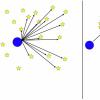I've noticed DuckDuckGo still provides a lot of Longecity hits. I was searching something unrelated yesterday and was surprised to see a thread come up where I had posted.
The amount of information on the web has substantially increased over the past decade. This can cause searches to take longer than usual, and lose customers. The search algorithm has been streamlined partially in response.
There is some evidence of successful legislation/restriction, but mostly aimed at the "monopolistic" aspect of Google, Facebook, Amazon.
https://www.reuters....ial-2023-11-16/
One thing you can do is include what I call an "academic qualifier keyword", such as NCBI... so search "vaccine risks ncbi" and you will get a mixture of results. By telling the search engine that you are a more academic or astute or erudite person, it will not present you with the same bland filters as everyone else.
And if you don't like the results of a particular engine... switch to a different one. Among the top 5 search providers, DuckDuckGo seems the least reliant on the EAT principles (see post #1579).
But this even seems to be less true. Search engines are increasingly driven by machine learning [1]. Being largely trained on public or academic data, it often reflects biases of those domains. And they can somewhat pollute, distort, simplify, or confuse word and phrase meanings as well as deprioritize result relevancy... making it harder to find what you're looking for (especially using exact quotes from unpopular websites).
The sad thing is for the average (not very intelligent or curious) individual, these cookie cutter, basic search results served up by AI models are often preferred. So from a marketing perspective, it makes economic sense, regardless of whether it irritates more educated people or people of alternative viewpoints (who are unusual and likely represent a minority).
It's not clear to what extent the law of unintended consequences applies here. The economic motivations could easily erode democracy as a byproduct. And as pointed out, society has gotten uncontrollably large... we don't live in a democracy so much as a republic. Our ability to affect great change is minuscule in probability. We need to ask how we can restore balance to the power structures that have grown out of and crystallized society. Complaining solves little; pointing fingers at authority figures or high ranking officials raises awareness, but it does not constitute a comprehensive action plan in itself.
What's more is people are often innocent to pertinent issues which are NOT filtered by search results. For example if you Google "is the world running out of zinc" or "what is peak oil" or "how effective is solar panel recycling" or "how much lithium does earth have in its reserves", you'll find some frighteningly informative sources. Yet virtually no one today seems to feel society needs to radically alter its means to achieve sustainability tomorrow. We instead adopt a "fix it when we get there" mentality, or fall victim to the optimism bias of "what about asteroid mining?" Anyone with a comprehensive scientific background can see the gravity of the situation and the pitfalls of these mentalities, modalities, biases. Sadly most people won't see the red flags, and as they did with Musk's dreams to colonize Mars in the next 5 years [2], they will put themselves behind an ill-founded cause.




























































